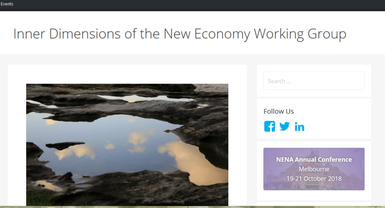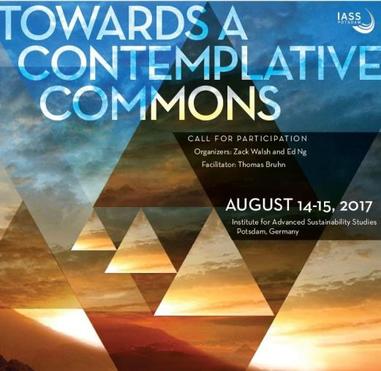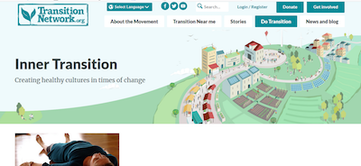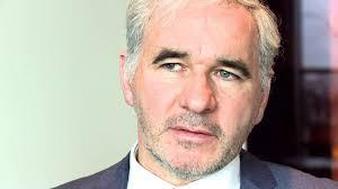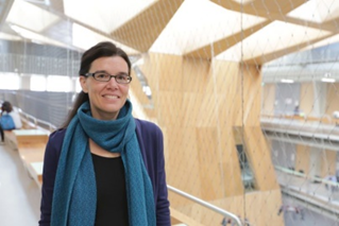Contemplative Commons and the Inner Dimensions of the New Economy
|
My growing concerns about the economic rationalism currently driving tertiary education led my search for new models, and ensuing discovery of the New Economy, variously described as the: Social Economy, Solidarity Economy, Sharing Economy, Collaborative Economy, Steady State Economy and Community Economy. The New Economy seeks a steady state economy grounded in true democracy, social justice and sustainability. I am now a member of the New Economy Network of Australia (NENA), whose definition of the New Economy is grounded in the principles of: Ecological Sustainability, Social Justice, Democracy,
Place-based/Emphasizing locality and Working in partnership with First Nations people see: https://www.neweconomy.org.au/resources/what-is-the-new-economy-2/ |
|
In the shift from the Old Economy’s inequitable distribution of wealth, untenable consumption and pollution of the planet - to a New Economy grounded in equality and sustainability, broad systemic change is required. Work is currently being done in economic and political spheres but little has been done to address the individual and collective social practices that are required for this broad social shift. Addressing the need for the heightened self-awareness required for this transformation the Transition Network says:
Transformative leadership starts with self, but without a sense of ourselves and behaviors in relation to other people and to power, we’re in danger of reproducing what we want to push past. We are all implicated in heteropatriarchy, white supremacy, colonialism and capitalism. A good starting point for overcoming that is - awareness in particular of the obvious and not so obvious power dynamics at play in our interactions with others. http://neweconomyorganisers.org/wp-content/uploads/2016/08/Leadership-Practice-Model-NEON.pdf |
|
As a contemplative theorist I believe the foundation of this transformation is the pre-conceptual ground we enter through contemplative practice, which is why I developed and now facilitate NENA’s “Inner Dimensions of the New Economy” Working Group: https://www.neweconomy.org.au/about/working-groups/inner-dimensions/ |
|
Other projects addressing inner dimensions of the New Economy are:
The Contemplative Commons, being developed by Zack Walsh, Ed Ng and others who say: “Realizing a successful transition to a post-capitalist, commons-based political economy will not only depend on the capacity for new technologies and social relations to alter the balance of political and economic power; it will also depend on developing social practices that underlie a broader cultural shift. Though there exists some scholarship on the social and cultural dimensions of a commons-based transition, there is comparatively little work that approaches its ethical and contemplative dimensions” https://wiki.p2pfoundation.net/Towards_a_Contemplative_Commons |
|
Inner Transition from the Transition Network, The team developing Inner Transition suggest:
“We often find that the most thriving Transition groups are paying as much attention to their culture, processes, structures and relationships as they are to their practical projects, activities and outputs. And we know that individuals and groups risk burn-out or collapse if they don’t balance action, decision-making and activity with rest, reflection, connection and celebration (balancing being and doing).” (https://transitionnetwork.org/do-transition/inner-transition/) |
|
Peter Doran’s work, Doran, P. (2017). A Political Economy of Attention, Mindfulness and Consumerism: Reclaiming the Mindful Commons. New York, NY: Routledge Studies in Sustainability, in which he outlines that,
“The power of capital is the power to target our attention, mould market-ready identities, and reduce the public realm to an endless series of choices. This has far-reaching implications for our psychological, physical and spiritual well-being, and ultimately for our global ecology. In this consumer age, the underlying teachings of Buddhist mindfulness offer more than individual well-being and resilience. They also offer new sources of critical inquiry into our collective condition, and may point, in time, to regulatory initiatives in the field of well-being.” (https://www.routledge.com/A-Political-Economy-of-Attention-Mindfulness-and-Consumerism-Reclaiming/Doran/p/book/9781138015975) https://mindfulcommons.org |
|
Christine Wamsler’s work on Mindfulness in Sustainability Studies, which is described in the project’s website:
“Humanity is facing increasingly complex environmental and sustainability challenges. Current coordination mechanisms, problem-solving strategies, and modes of scientific inquiry, teaching and learning appear insufficient to address these challenges. As a result, personal sustainability and inner transformation (embodied in notions such as mindfulness and compassion) is emerging as a potential new area of exploration. The “Contemplative Sustainable Futures Program” was set up to explore this new area and create space and opportunities for learning, networking and knowledge development on this topic. In this context, special attention is given to the issue of sustainable climate adaptation and risk reduction.” (https://www.lucsus.lu.se/research/urban-governance/contemplative-sustainable-futures) |




